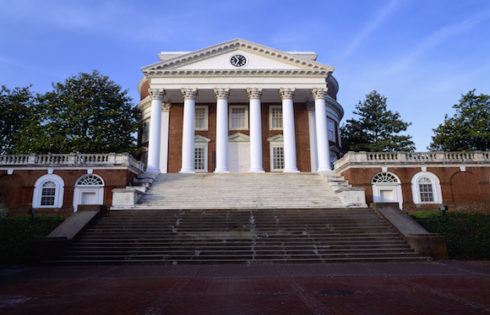
In what surely induced paroxysms of postmodernist glee among attendees, last week Amherst College held an event dubbed “Decolonization in Comparative Context” featuring none other than Drexel University’s infamous “white genocide” professor, George Ciccariello-Maher.
The “all-star symposium” (Ciccariello-Maher’s words) “attempted to define decolonization and discuss ‘its origins and its connection to the histories and memories of a given geographical space,’ as well as the ‘legacies [that] decolonial thinking pass[es] on to contemporary thought.”
According to the event’s Facebook page, the first day featured Ciccariello-Maher on “The Cunning of Decolonization” along with a pair of fellow academics whose talks also included “decolonization” in the titles.
“Masks” was the big theme on the second day with the cleverly, if not very originally, titled “On Red Skin, White Masks,” “On Brown Skin, White Masks,” and “On Black Skin, White Masks.”
These three featured discussions such as “Indigenous Dreamin’: How Indigenous Hip Hop Rejects the Colonial Politics of Authenticity and Recognition,” “You are Rich Because You are White, You are White Because You are Rich,” and the oh-so beautifully worded “Re-Reading Fanon with Marx: Disaggregation of the Subject as a Form of Primitive Accumulation.”
Black Studies professor John Drabinski (whose department hosted the event) explained the confab to The Amherst Student thusly: “[I]t was pretty straightforward: find interesting, creative, innovative and important scholars in our fields … and ask them to come talk about decolonization.”
Much of Drabinski’s own writing and teaching is focused on the idea of decolonization, which for him is defined as the “name for a process of liberation from racially oppressive and exploitative pasts, a way of contesting the everydayness of racist hegemony and domination as well as large institutional structure,” he said.
“It’s about de-centering whiteness and white racial hegemony … against the idea of a center itself, against a fixed measure, against racially exclusive notions of what it means to be human and express your humanity,” he said.
Drabinski added that he believes the college faces, in its own way, “this very issue as it moves from the hard work of diversification to the even harder, even more crucial work of anti-racist struggle … Decolonization is about re-making the world and creating new forms of sociality, politics and culture. That’s a very big issue for nations. It’s also a very big issue for small places like neighborhoods, communities and, yes, college and university campuses.”
Chimaway Lopez ’20, one of the students who attended the Saturday panels, found the topics of the panel particularly relevant to the lives of Amherst College students.
“This event is, I guess, encapsulating a lot of what I’m interested in, intellectually,” said Lopez. “The systems of globalization today that we’re all living in — how different people have theorized colonialism — it’s pertinent to everyone’s experience here at Amherst.”
Since Amherst features an almost $70,000 total cost of attendance, I sure hope you got your “decolonization fill,” Mr. Lopez.
Read the full Student article and Facebook event page.
MORE: Students say science should be ‘scratched’ — because ‘colonization and racism’
MORE: Yale ‘decolonizes’ English dept. after complaints studying white authors ‘actively harms’ students
IMAGE: dignidadrebelde/Flickr
Like The College Fix on Facebook / Follow us on Twitter






Please join the conversation about our stories on Facebook, Twitter, Instagram, Reddit, MeWe, Rumble, Gab, Minds and Gettr.